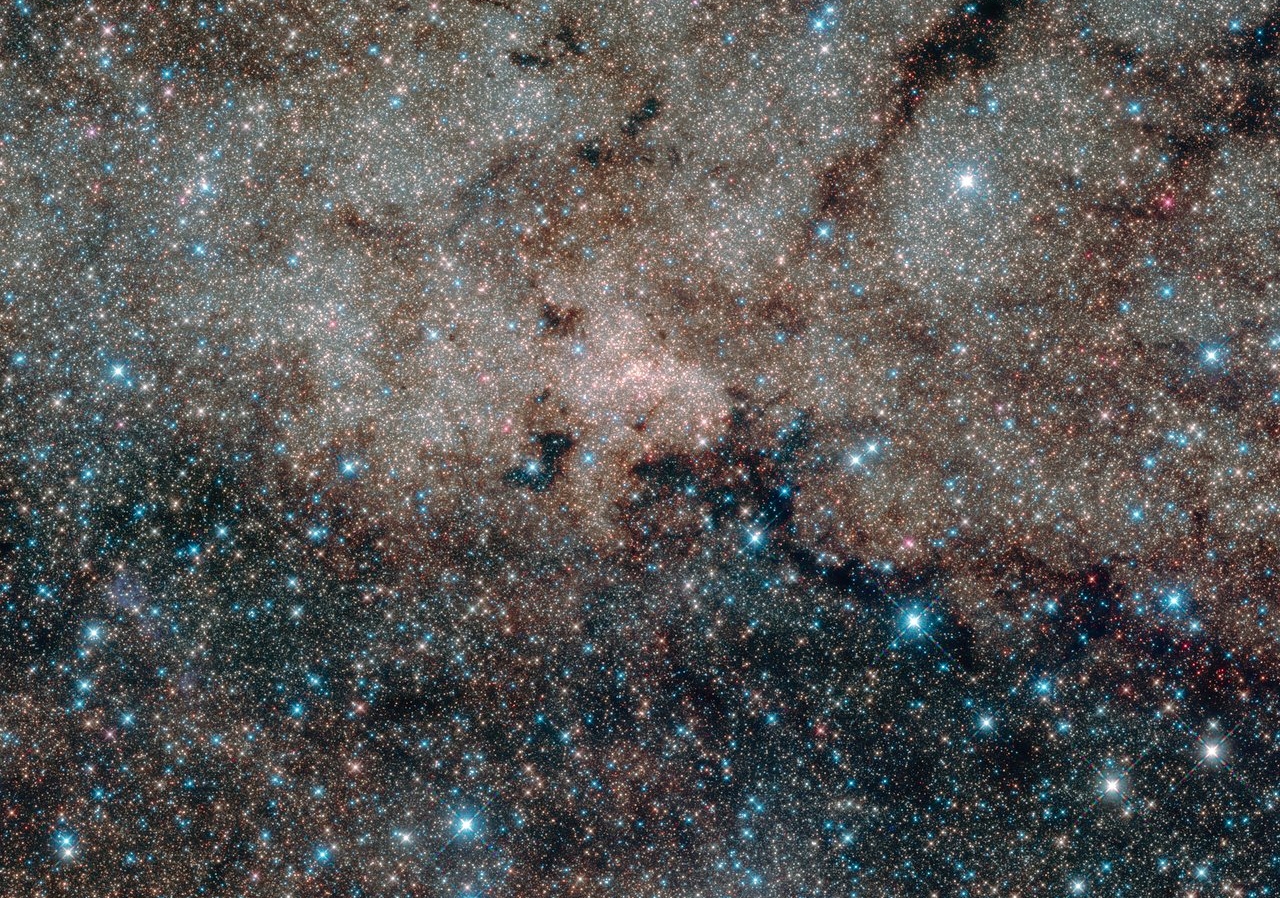Computation on the cloud to unveil the mysteries of our Galaxy

The project, awarded by the European network ‘Open Clouds for Research Environments’ (OCRE), counts with the collaboration of the private sector by the hand of Pervasive Technologies, Google Cloud, and Telefónica
The aim of the Galactic RainCloudS project is to use efficient computational Infrastructures to analyse the enormous volumes of data from the Gaia Satellite of the European Space Agency (ESA)
The Galactic RainCloudS project, led by researchers of the Institute of Cosmos Sciences of the Universitat de Barcelona (ICCUB), has been granted the first position in a funding programme of the European network "Open Clouds for Research Environments" (OCRE). This first edition of “Cloud Funding For Research" will fund the use of commercial computational cloud resources for research. The project competed with 27 other proposals from 12 different countries and in a wide variety of research fields.
The primary investigator of the project, director of the ICCUB and member of the Institute of Space Studies of Catalonia (IEEC — Institut d'Estudis Espacials de Catalunya), Xavier Luri, remarks: “The Galactic RainCloudS project is pioneer in Europe on the use of Cloud Computational Infrastructures for research in astronomy, and it has been conceived with the objective of proving the advantages of the use of cloud resources for the scientific community”.
The key to the project lies in its interdisciplinary nature: the combination of the huge volumes of data from the Gaia mission of the European Space Agency (ESA) with the increasing computational power and flexibility of cloud infrastructures and data mining techniques, will allow the researchers to study the existing links between past galaxy collisions and stellar formation in a holistic way, using the Milky Way and its satellite galaxies as a giant experimental laboratory.
“Cloud computing is like renting a series of powerful computers that are tailored to your specific necessities for a certain period of time which will allow us to perform all the necessary calculations to study the interaction among galaxies”, says Mercè Romero, IEEC member and ICCUB researcher.
Galactic RainCloudS counts with the collaboration of the private sector by the hand of Pervasive Technologies, who are bringing their expertise on artificial intelligence and cloud computation to the table; Google Cloud, that is providing the gCloud computational infrastructure; and Telefónica, who will contribute to the project with their expertise on cloud resources management.
The project also includes the development of a system to detect traces of past collisions of small galaxies with the halo of our Galaxy. In the words of the IEEC member and ICCUB researcher Teresa Antoja, “the existence of granularities in the galactic halos is predicted by the current cosmological model of the formation of our Universe. The active search of these kinds of substructures among the Gaia data can provide crucial information about the history of the Milky Way, even about the nature of Dark Matter”.
Press release made in collaboration with the Communication Offices of the Institute of Cosmos Sciences of the Universitat de Barcelona (ICCUB) and the Universitat de Barcelona (UB).
Main image
The Milky Way centre
Caption: This infrared image from the NASA/ESA Hubble Space Telescope shows the centre of the Milky Way, 27 000 light-years away from Earth. At the centre of this nuclear star cluster — and also in the centre of this image — the Milky Way’s supermassive black hole is located.
Credit: NASA, ESA, and the Hubble Heritage Team (STScI/AURA).
Acknowledgment: NASA, ESA, T. Do and A. Ghez (UCLA), and V. Bajaj (STScI).
Links
– IEEC
– ICCUB
– Galactic RainCloudS
– Gaia
More information
The Institute of Space Studies of Catalonia (IEEC — Institut d’Estudis Espacials de Catalunya) promotes and coordinates space research and technology development in Catalonia for the benefit of society. IEEC fosters collaborations both locally and worldwide and is an efficient agent of knowledge, innovation and technology transfer. As a result of 25 years of high-quality research, done in collaboration with major international organisations, IEEC ranks among the best international research centers, focusing on areas such as: astrophysics, cosmology, planetary science, and Earth Observation. IEEC’s engineering division develops instrumentation for ground- and space-based projects, and has extensive experience in working with private or public organisations from the aerospace and other innovation sectors.
IEEC is a private non-profit foundation, governed by a Board of Trustees composed of Generalitat de Catalunya and four other institutions that each have a research unit, which together constitute the core of IEEC R&D activity: the Universitat de Barcelona (UB) with the research unit ICCUB — Institute of Cosmos Sciences; the Universitat Autònoma de Barcelona (UAB) with the research unit CERES — Center of Space Studies and Research; the Universitat Politècnica de Catalunya · BarcelonaTech (UPC) with the research unit CTE — Research Group in Space Sciences and Technologies; the Spanish Research Council (CSIC) with the research unit ICE — Institute of Space Sciences. IEEC is a CERCA (Centres de Recerca de Catalunya) center.
Press release made in collaboration with the Communication Offices of the Institute of Cosmos Sciences of the Universitat de Barcelona (ICCUB) and of the Universitat de Barcelona (UB).
Contacts
IEEC Communication Office
Barcelona, Spain
Ana Montaner and Rosa Rodríguez
E-mail: comunicacio@ieec.cat
Lead Researcher at IEEC
Barcelona, Spain
Xavier Luri
Institute of Cosmos Sciences of the Universitat de Barcelona (ICCUB)
Institute of Space Studies of Catalonia (IEEC)
E-mail: xluri@ieec.cat, xluri@icc.ub.edu
